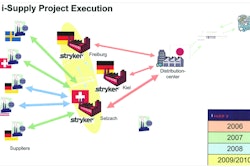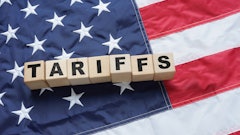July 21--Cal Poly's president has signed off on a resolution pledging the university will purchase products using conflict-free minerals whenever available.
Minerals such as tin, gold, tantalum and tungsten are used in the manufacturing of electronic products, including computers and mobile phones purchased in bulk by universities such as Cal Poly.
Conflict minerals mined in the Democratic Republic of Congo in Central Africa are sold to finance war efforts in a region where more than 5.4 million civilians have been killed.
An estimated 5 percent to 20 percent of the world's supply of these minerals comes from mines in the Congo, though not all mines in the country are used to finance warfare.
Katie Hoselton, who graduated from Cal Poly in June with a bachelor's degree in political science, lobbied the university to adopt the resolution, signed June 27 by university President Jeffrey Armstrong.
The resolution follows the Dodd-Frank Wall Street Reform and Consumer Protection Act and California Senate Bill 861.
Both require certain disclosures from companies that use minerals mined in the Congo detailing whether sales of minerals they used are benefitting armed groups in the area.
The Cal Poly resolution doesn't go so far to say that the university will guarantee the purchase of conflict-free minerals. Armstrong noted the university has no "legal means" to favor conflict-free products.
But it notes the university will "take into account whether electronic products contain conflict minerals in future purchasing decisions and, when available, will favor verifiably conflict-free products."
"I congratulate Ms. Hoselton for bringing to Cal Poly's attention the upsetting conditions under which so many people continue to live in the Democratic Republic of Congo," Armstrong wrote in a statement about the resolution.
Hoselton said that she hopes Cal Poly will honor its word to pursue conflict-free products over ones that are not certifiably conflict-free.
For example, she said, Intel has a forthcoming line of microprocessors that will be certified as conflict-free.
Hoselton had hoped to establish an annual audit to help ensure Cal Poly is abiding by the resolution, but she wasn't successful in getting an agreement on that from the university, she said.
She added that she hoped Cal Poly would "implement some type of accountability mechanism within the Office of Procurement, to ensure that the statements agreed upon in this resolution are upheld after I left Cal Poly."
"Without a student or group on campus to continue to keep tabs on the administration and applying pressure where needed, I fear that the spirit of the resolution may be lost, or forgotten," Hoselton said.
Copyright 2014 - The Tribune (San Luis Obispo, Calif.)

















